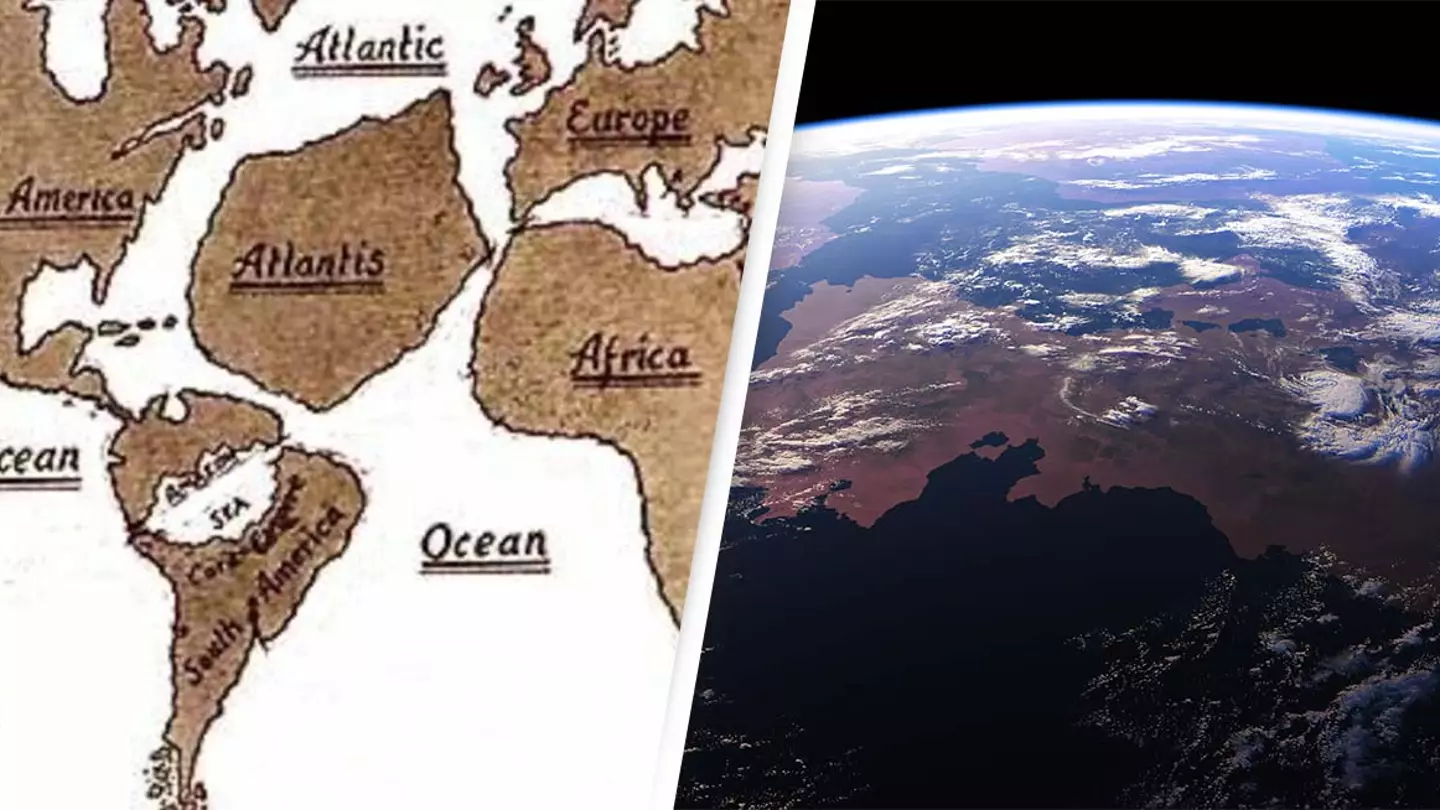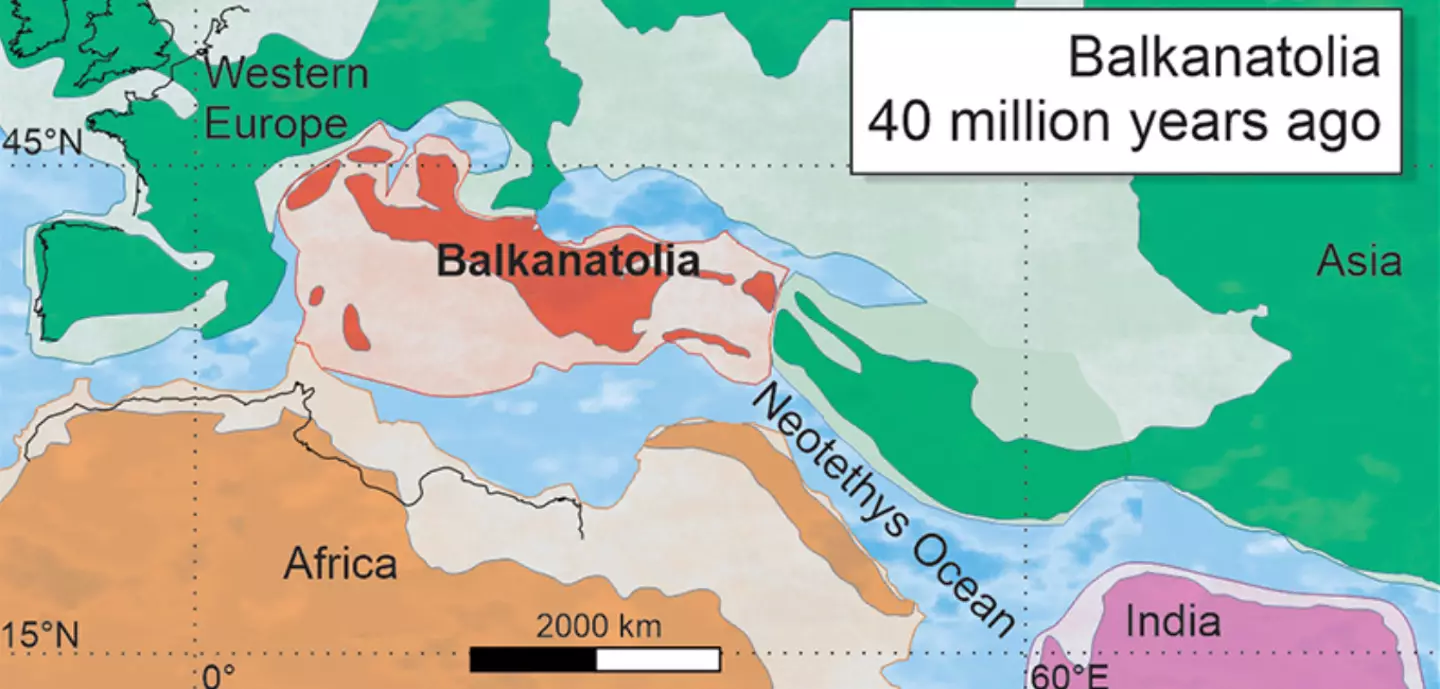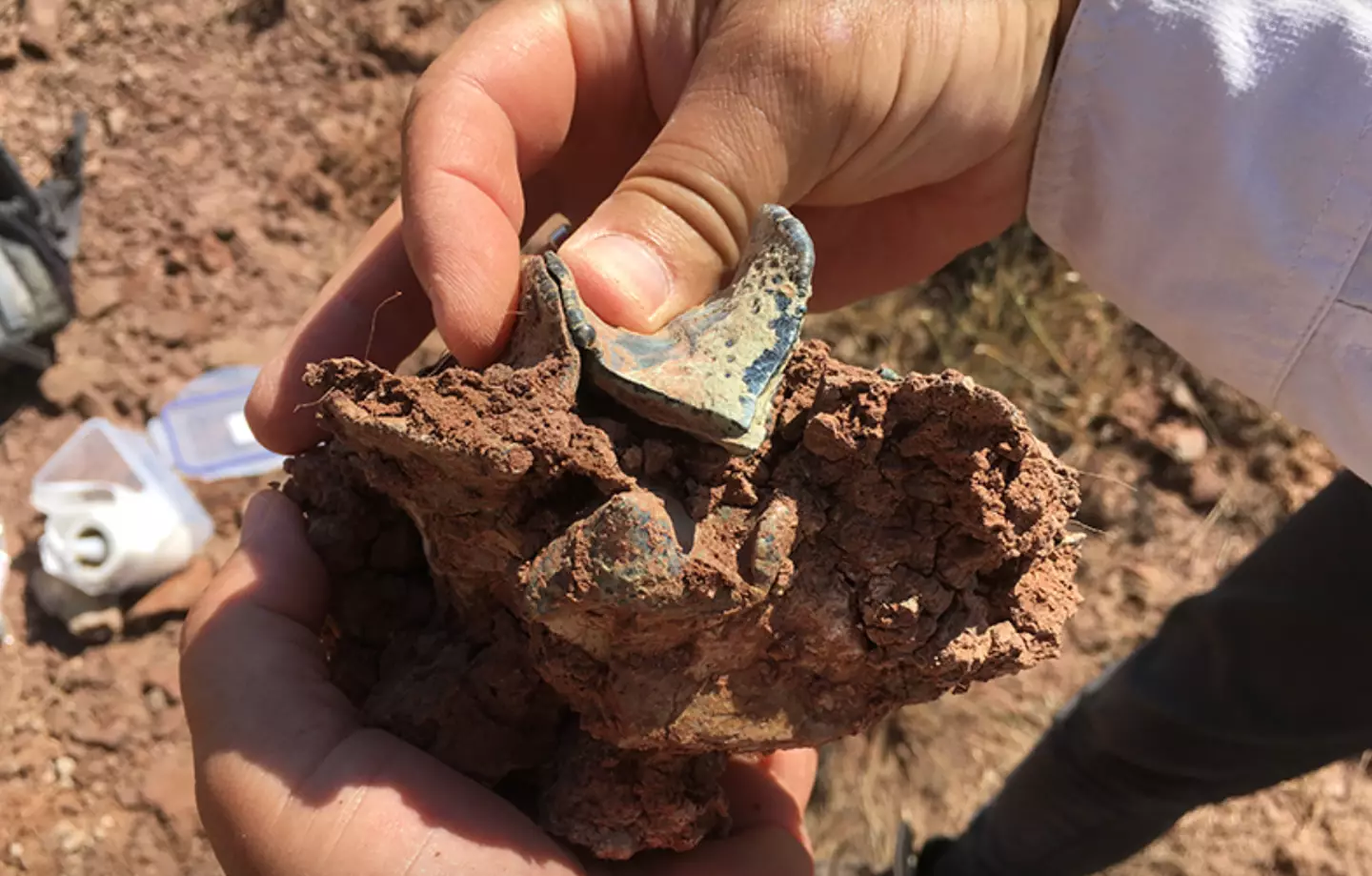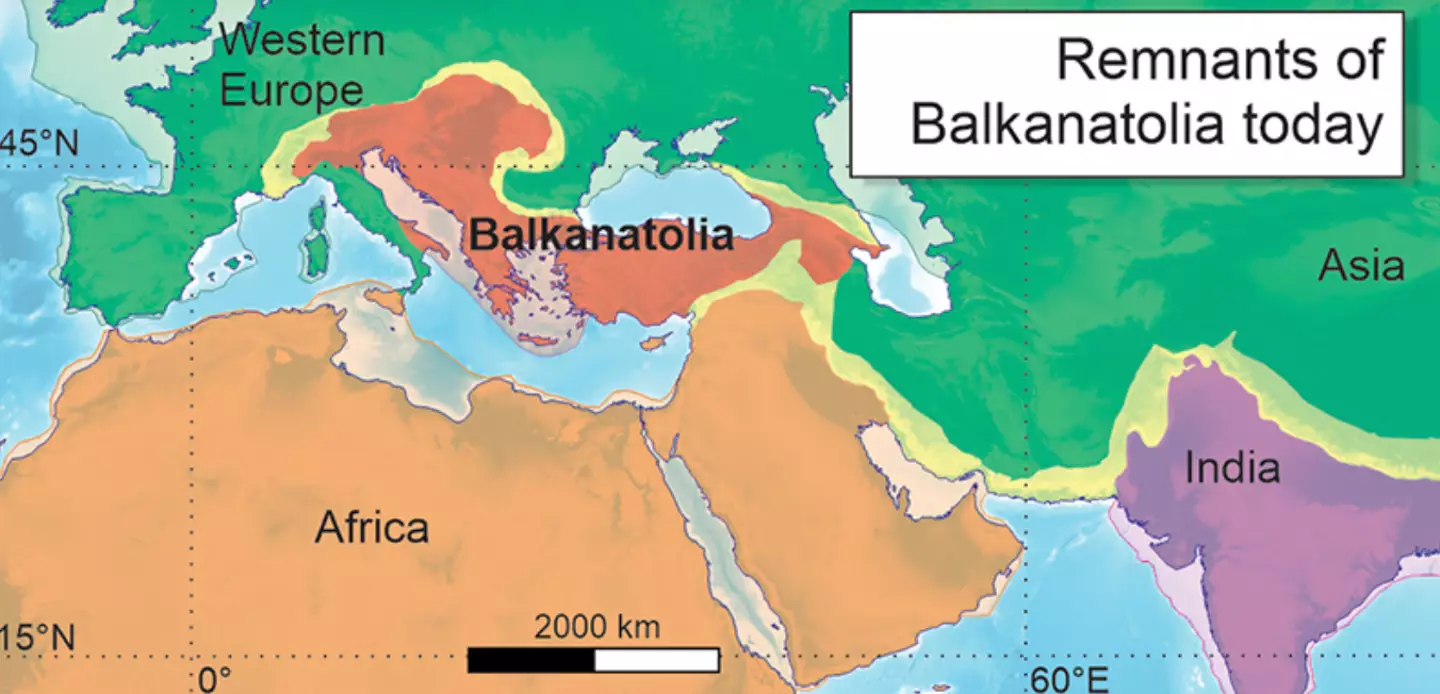
The lost continent of Balkanatolia has been rediscovered by researchers.
The continent is said to have stretched across the present-day Balkans and Anatolia, hence its name 'Balkanatolia'.
Researchers suggest that the continent could help explain why there are difference in mammal fossils in the region between Western Europe and Asia.

The team was led by researchers from the Centre national de la recherche scientifique (CNRS) and included French, American and Turkish palaeontologists and geologists.
Advert
It has been understood, for some time, that around 34 million years ago fauna indigenous to Asia colonised Western Europe, which led to a major renewal of vertebrate fauna.
This event, dubbed the Grande Coupure, introduced new fauna into the region and led to the extinction of some mammals native to Europe.
However, evidence was then found that seemed to contradict our current understanding of this event.
Fossils in the Balkans were discovered that suggested the presence of Asian mammals in that part of southern Europe, some time before the Grande Coupure.

With this in mind, the team of researchers set out to understand why this might be, and to understand more about the history of the region.
Advert
In doing so, they reviewed earlier paleontological discoveries in light of current geological data.
They found that 'the region corresponding to the present-day Balkans and Anatolia was home to a terrestrial fauna that was homogeneous, but distinct from those of Europe and eastern Asia'.
This means that the 'region must therefore have made up a single land mass, separated from the neighbouring continent' to have had such different fauna.
This led to the researchers concluding that around 50 million years ago, there was a 'low-lying continent separating Europe from Asia', as per CNRS.

During this time, it is said that the fauna — mammals — that inhabited the region were very different from those of Europe and Asia.
Advert
Around 40 million years ago, the continent was colonised by mammals from Asia following 'geographical changes that have yet to be fully understood'.
The researchers claim that a 'major glaciation' took place some six million years later, which lowered sea levels.
This connected Balkanatolia to Western Europe, paving the way for the Grande Coupure.
If you have a story you want to tell, send it to UNILAD via [email protected]
Topics: News, World News, Animals